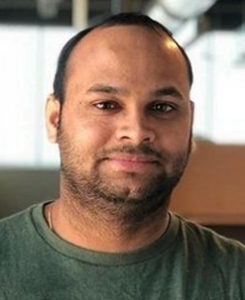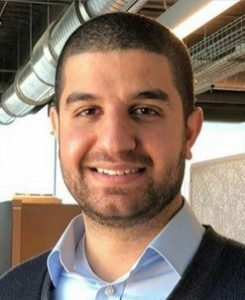DEVIANCE 2021 Workshop on Deviant Activities on Social Media
Co-located with 2021 IEEE Conference on Big Data (IEEE Big Data 2021)
December 16, 2021 – Now taking place virtually
Introduction
With the proliferation of smart devices, mobile applications, and social network platforms, the social side effects of these technologies have become more profound, especially in social and political disintegration. Several journalistic and academic investigations have reported that modern communication platforms such as social media (e.g., Twitter, Facebook, blogs, YouTube, and the “deep web” channels) are strategically used to coordinate various deviant activities such as cyber propaganda campaigns. Several researchers have studied these deviant activities and identified various tactics, techniques, and procedures used by various online deviant groups, e.g., online propagandist groups,terrorist groups sympathizers, black-hat hacker groups, and internet trolls. Various social media platforms utilized the research findings to detect and curb some of these deviant activities. However, the techniques that are used by the aforementioned deviant groups evolve and adapt to go on undetected. This is a growing problem on social media that needs to be explored and solved.
In this workshop, our aim is to have a scientific discussion among the experts who study deviant activities on social media, including but not limited to, detection of deviant/disruptive behaviors on social media; misinformation detection, identification, and dissemination; case studies of misinformation; etc. This includes, but is not limited to, the following topics:
Research Topics
- Misinformation detection
- Misinformation dissemination tactics such as misdirection, hashtag-latching, smoke screening
- Multiple platform orchestration (cross-platform dissemination strategies)
- Algorithmic manipulation such as exploiting recommendation algorithm bias manipulation
- Deviant behaviors on social media platforms such as cyber bullying, organized hacking
- Spamming, spear phishing through social media channels
- Coordination strategies and detection
- Mobs such as cyber flash mobs, smart mobs, deviant cyber flash mobs, automated deviant mobs
- Coordinated inauthentic behaviors
- Machine driven communications (bots, botnets, social bots, etc.)
- Troll detection and strategies
- Hate speech (toxic, polarizing, or disruptive content)
- Narratives analysis during misinformation online campaigns
- Stance detection and intent classification
- Policy implications
**In the light of recent elections worldwide, the COVID-19 pandemic, and covid-related deviant behaviors such as anti-lockdown campaigns, vaccine hesitancy, etc., we also solicit papers focused on disinformation and misinformation being disseminated related to these events.**
Important Dates
- Submission Deadline:
September 15October 8, 2021 (firm deadline) - Notification to Authors: November 1, 2021
- Camera Ready Due: November 12, 2021
Venue Information
Due to the current COVID-19 pandemic, the IEEE BigData conference and the DEVIANCE 2021 Workshop will be held virtually. The workshop sessions will be conducted synchronously using real-time conferencing software. The authors of the workshop must present their papers according to the announced schedule. Participants can access the conference virtual platform by visiting https://underline.io/events/222/sessions?eventSessionId=9626.
Submission
Full paper manuscripts must be in English with a maximum length of 10 pages (using the IEEE two-column template). Submissions should be in PDF and include the title, author(s), affiliation(s), e-mail address(es) and abstract on the first page. Workshop papers can be submitted through the submission portal.
Papers should be formatted to IEEE Computer Society Proceedings Manuscript Formatting Guidelines.
All papers accepted for the workshop will be included in the Conference Proceedings published by the IEEE Computer Society Press.
Special Issue
Selected presentations will be invited to submit extended studies to Springer’s Social Network Analysis and Mining (SNAM) special issue on Deviant Behaviors on Social Media.
Program
| Time | Title | Presenter/Author |
| 9:00am-9:15am | Introduction to the Workshop | Workshop Chairs |
| Track 1 | ||
| 9:15am – 9:40am | BigD402 – Am I Being Bullied on Social Media? An Ensemble Approach to Categorize Cyberbullying | Mohsinul Kabir |
| 9:40am – 10:05am | BigD396 – Hate or Non-hate: Translation based hate speech identification in Code-Mixed Hinglish data set | Shankar Biradar |
| 10:05am – 10:30am | S06205 – An Implementation of Fake News Prevention by Blockchain and Entropy-based Incentive Mechanism | Chien-Chih Chen |
| 10:30am – 10:55am | S06204 – Identifying the Popularity and Persuasiveness of Right- and Left-Leaning Group Videos on Social Media | Lin Ai/Anika Kathuria |
| 10:55am – 11:20am | S06207 – MetaHate: A Meta-Model for Hate Speech Detection | Daniel G. Kyrollos |
| 11:20am – 12:30pm | Lunch Break | |
| Track 2 | ||
| 12:30pm – 12:55pm | S06210 – If it retweets like a troll, follows like a troll and looks like a troll; is it a troll?: Targeting the 2021 Ecuadorian Presidential Elections Trolls | Saríah López-Fierro |
| 12:55pm – 1:20pm | S06201 – Beyond a binary of (non)racist tweets: A four-dimensional categorical detection and analysis of racist and xenophobic opinions on Twitter in early Covid-19 | Deval Mehta |
| 1:20pm – 2:25pm | Keynote | Dr. Anatoliy Gruzd |
| 2:25pm – 2:40pm | Short Break | |
| Track 2 (continued) | ||
| 2:40pm – 3:05pm | S06206 – Identifying Social Media Content Supporting Proud Boys | Swapna Gokhale |
| 3:05pm – 3:30pm | S06208 – Internet Trolls against Russian Opposition: A Case Study Analysis of Twitter Disinformation Campaigns against Alexei Navalny | Iuliia Alieva |
| 3:30pm – 3:45pm | Closing Remarks | |
| *All Times in United States EST (to keep it consistent with main conference time). | ||
Organizing Committee

Esther Ledelle Mead
Postdoctoral fellow, COSMOS research center at University of Arkansas at Little Rockelmead@ualr.edu

Kiran Kumar Bandeli
Senior Data Scientist, Walmart Inc.KiranKumar.Bandeli@walmart.com

Samer Al-khateeb
Assistant Professor, Creighton UniversitySamerAl-Khateeb1@creighton.edu

Nitin Agarwal
Jerry L. Maulden-Entergy Chair & Distinguished Professor
Director, COSMOS research center and Distinguished Professor at University of Arkansas at Little Rock
nxagarwal@ualr.edu

Thomas Marcoux
Web Chair – Computer and Information Science PhD candidate, University of Arkansas at Little Rocktxmarcoux@ualr.edu
Program Committee
- Donald Adjeroh (West Virginia University, USA)
- Steven Fernandes (Creighton University, USA)
- Ugur Kursuncu (South Carolina University, USA)
- Huan Liu (Arizona State University, USA)
- Onur Savas (Accenture Federal Services, USA)
- Ingmar Weber (Qatar Computing Research Institute, Qatar)
- Therese Williams (University of Central Oklahoma, USA)
